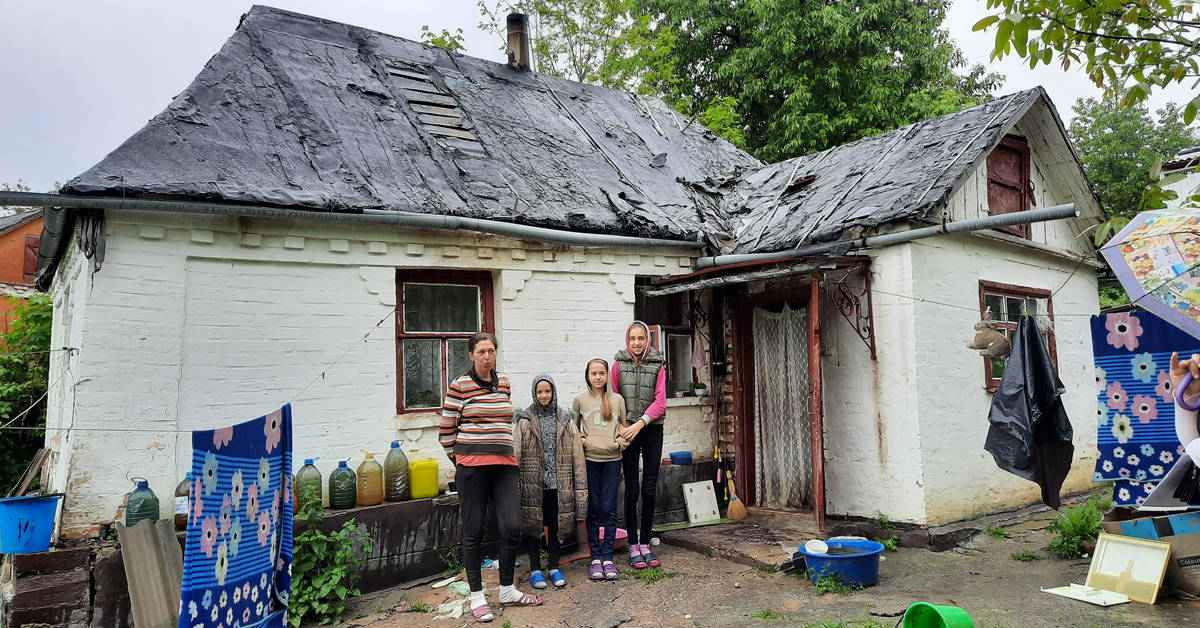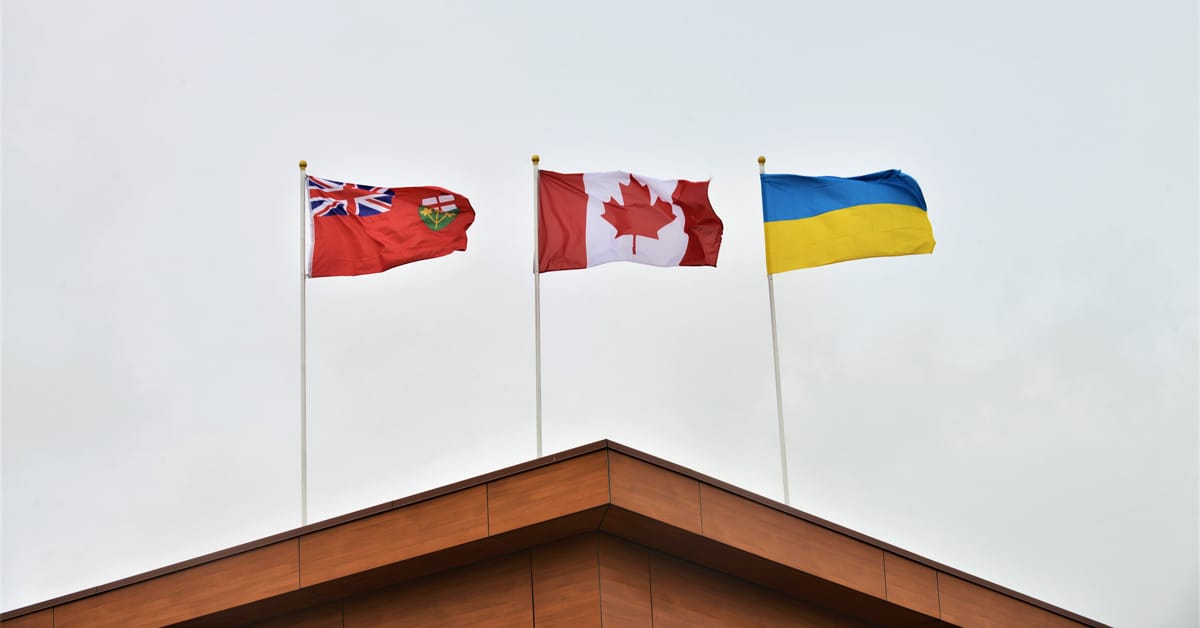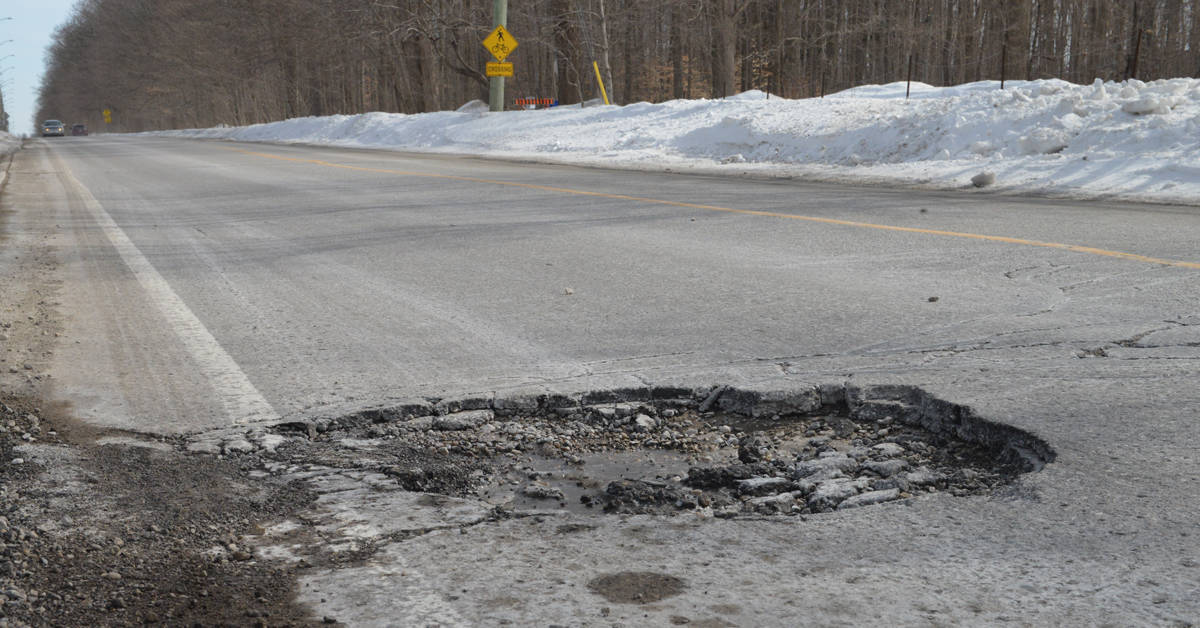The Mennonite Central Committee’s relief efforts in Ukraine continue despite the evacuation of personnel there due to the invasion by Russian forces starting February 24.
The development agency has been providing aid in Ukraine for more than a century. With plans already in flux as the Russians built up forces at the border, the organization’s protocols forced the withdrawal of its aid workers.

MCC continues their humanitarian work in Ukraine nonetheless, offering help to those effected by war.
“We’re not abandoning Ukraine in any way. Work will continue, but we just take it on a daily basis and we continue to monitor the situation,” said MCC Canada spokesperson Laura Kalmar. “We have really strict safety and security protocols, and we’re following those because we don’t want to put our staff or partners in danger.
She noted the conflict with Russia isn’t unknown to MCC, which was offering aid in the build-up to the occupation of Crimea in 2014.
“We’ve been working in Ukraine for a long, long time and those projects and partners continue despite the current situation,” said Kalmar.
The ongoing work is part of a longstanding partnership with Ukraine, MCC Canada executive director Rick Cober Bauman,
“One hundred years ago, we responded to crisis in Ukraine,” he said in a release. “A century later, we find ourselves walking alongside the people of Ukraine in crisis once again. They are pleading for our prayer and support and a reminder they have not been forgotten during this time.”
On February 13, MCC evacuated four people working overseas on relief programs in Ukraine due to the worsening situation. Those staffers returned home to Canada or the US with hopes of returning to their work in the future.
The MCC and their partners still have people on the ground, trying to help as the situation in Ukraine continues to unfold.
“We do have some staff that were evacuated last weekend from the country. Those were staff that were outside their home country – so, people from Canada and the US. We do have staff that remain in Ukraine. They’re working with our organization’s leadership to evaluate and assess the situation and plan next steps for themselves and their families. The safety and security of our stuff or partners, the people of Ukraine are of utmost importance to us,” noted Kalmar.
“We’re in pretty regular contact with our partners. We haven’t heard at this point of any of them going into hibernation. But, of course, it’s a very dynamic situation, constantly changing on a daily basis. So, we continue to monitor it, we continue to stay in touch with our partners there on the ground, to hear from them, and there’s mixed reactions. People are aware, but the people of Ukraine are an incredibly strong and resilient people. They’ve come through a lot of hardships and they’re cautiously optimistic for their future I would say, despite really the unknown situation right now,” she said.
The MCC focuses its projects on relief, peace building, health, education, and sustainable livelihoods for displaced persons or vulnerable people. They have partner organizations in Ukraine to whom they ship donations, including those collected in this area.
The United Nations High Commissioner for Refugees reports some 1.8 million internally displaced persons and conflict-affected people live in the Ukraine. That number is expected to increase as Russia continues to attack.
“Peace building also encompasses trauma healing for us. And when people have been through trauma, through conflict, through war, those programs are so key to getting them back on the right track with their mental health, getting them to a place where they can live a full life. Trauma can really be very, very debilitating, and make somebody who’s already in a vulnerable position even more vulnerable. So those kind of mental health projects are so key when we work with people who have been in the midst of conflict and they’ve had to flee and have had to relocate,” said Kalmar.
She’s previously visited Ukraine to help with relief programs and meet some of the families they have been able to help with items donated to the MCC such as sewing or school supply kits.
“I was in Ukraine, and I met families, a single mom with three kids who is living in a one-bedroom apartment but incredibly resilient, like incredibly loving and caring mom, who’s just doing the best for her kids and receives support from MCC,” she said, noting donors have responded to the crisis.
“We’re so very grateful for all the ways they’re reaching out and really being generous to their neighbours who they’ve never met, who are thousands of miles away, but doing things like making a relief kit, filling it with soap and towels and shampoo or knitting a comforter or even donating or shopping in a thrift shop where the proceeds are part of the proceeds that will go to MCC programming, which does make such a difference in people’s lives.”
Canada has some 1.4 million people who identify as of Ukrainian heritage, perhaps the largest such immigrant population after the US.
“Oftentimes when you’re in the midst of crisis, these families who’ve had to flee and relocate and start their lives again, just knowing that there’s people in Canada who are generous and caring and compassionate and really do care about them, it’s such a sign of hope to them in a situation that can feel very, very hopeless.”
MCC is currently accepting donations to help the people in Ukraine as they try to navigate their way through the current crisis. More information about their programs can be found online.









